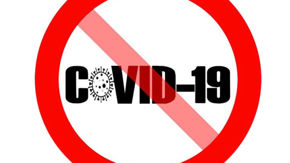4 min read//
Want to find out how to lose weight the right way? According to research there is substantial evidence linking partial sleep deprivation, defined as sleeping less than 6 hours per night, to weight gain, say corporate wellness speakers and consultants.
How does sleep deprivation make you gain weight?
- Restricted sleep is thought to increase the hormone ghrelin (which makes you want to eat) and decrease leptin levels (the hormone that tells you to stop eating).
- Sleep restriction is also thought to increase cortisol release: a stress hormone.
- People who stay awake longer are more likely to snack excessively and quite possibly on the wrong foods.
- Sleep deprivation may also alter the body’s ability to manage body temperature, which can result in lowered energy expenditure, which causes easier weight gain.
- Inadequate hours or fragmented sleep contribute to worsening atherosclerosis which increases the risk for heart attack, increases high blood pressure and is a risk for diabetes.
- In fact, lack of sleep is associated with the development of many mental health disorders, which in turn may impact eating and exercise patterns.
How to lose weight and combat sleep deprivation using the FAB Quotient™
The FAB Quotient™ is a research-backed, practical framework outlining three essential dimensions which together drive wellbeing, performance and happiness. To tackle sleep deprivation it helps to look at all three dimensions: Fuel (how you eat); Activate (How you move) and Behave (How you manage stress, your own behaviours and how you interact with others).
FUEL: Cut caffeine and choose calming minerals
- Stress, stimulants like caffeine and sugar raises the activity of the two wakefulness adrenal hormones: adrenalin and cortisol. Raised cortisol levels at night suppress the production of growth hormones, essential for daily tissue repair, and this effectively speeds up the ageing process.
- Calming Minerals - A lack of calcium and especially magnesium can trigger or exacerbate sleep difficulties because they work together to calm the body and help relax nerves and muscles, thus reducing cramps and twitches. Magnesium levels may well be low if you are particularly stressed or consume too much sugar. Your diet is more likely to be low in magnesium than calcium – so make sure you are eating plenty of magnesium-rich foods such as seeds, nuts, green vegetables, whole grains and seafood.
Some people find it helpful to supplement 500mg of calcium and 300mg of magnesium at bedtime.
- Alcohol, although classified as a relaxant because it promotes a hormone called GABA, actually has a stimulatory after-effect, promoting anxiety as it can lead to rebound low levels of GABA. To bring your brain chemistry back into balance, it’s better to avoid alcohol, rather than depend on it to get you to sleep.
ACTIVATE:
- Doing regular exercise also helps you sleep better. This may be because exercise helps ‘burn off’ excess adrenalin and generally helps stabilise blood sugar, which in turn regulates energy levels. Avoid exercise 3-4 hours before sleeping unless it is stretch-based, such as Pilates or gentle yoga.
- Using breathing techniques can also help you to transition from wakefulness into deep restful sleep. Simply focusing on your breath and taking slow deep breaths will help to reduce your sense of anxiety and help your body to relax.
- Consider learning techniques such as meditation or power napping if you cannot get more sleep in the evenings.
BEHAVE:
For many people with chronic sleep issues, simple lifestyle changes can help. These good habits are known as “sleep hygiene”.
Some of the ones that we use include:
- Dimming the lights at least one hour before bedtime.
- Avoid artificial light, including electronic screens before trying to sleep. So no, checking email or facebook updates in the hour before you go to sleep. This is THE WORST pre-sleep ritual.
- Go to bed and wake up at the same time every day, even on weekends.
- Make sure you are comfortable - get the right linen and wear sleeping garments that create ease for you.
- Use your bedroom for sleep, not for research or work.
- Limit the time you spend in bed. Turn-in only when you are sleepy. If you don’t fall asleep within 15 minutes or if you wake up and can’t fall back to sleep within that amount of time, get out of bed and do something relaxing until you feel sleepy again.











